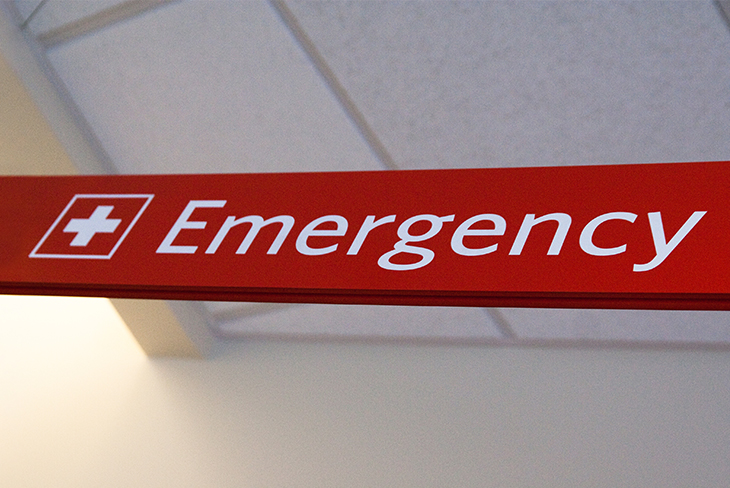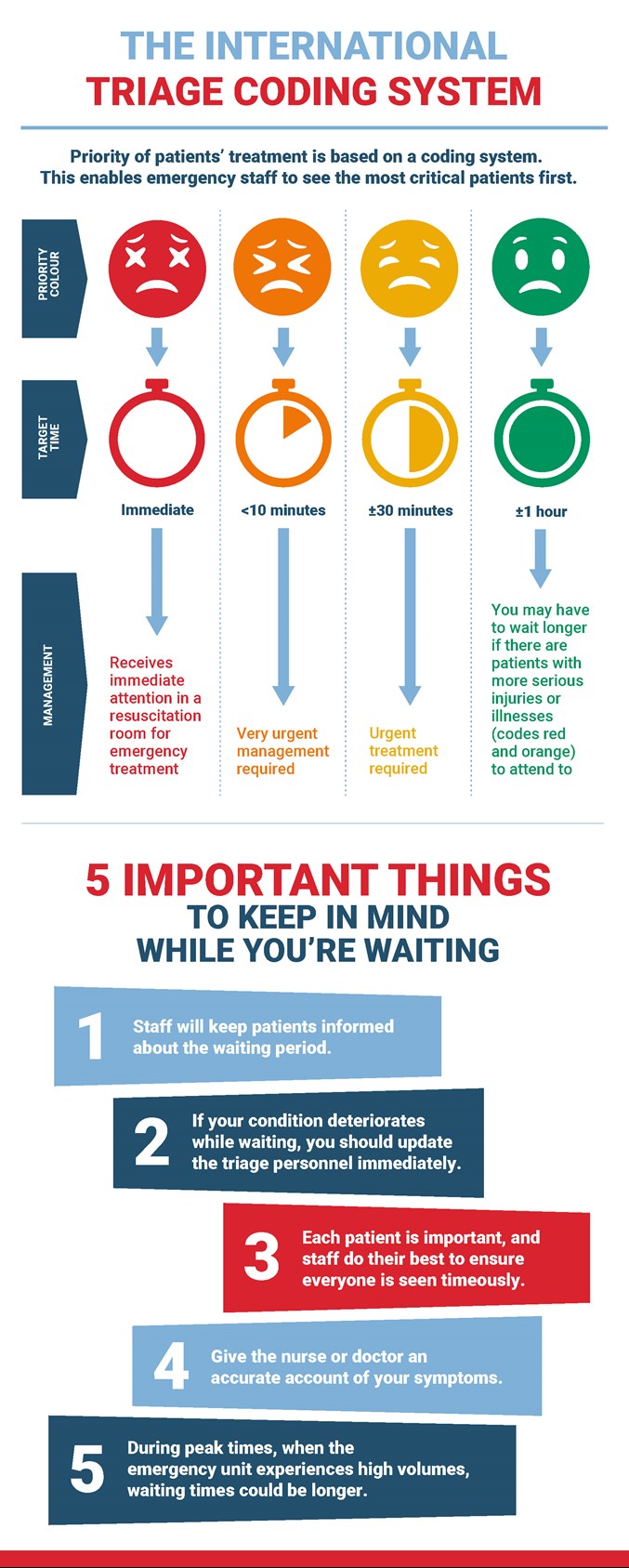How does the South African triage system work?

Understanding the international triage scales used in an emergency unit helps patients to be aware of how treatment is prioritised to save lives
A serious medical emergency is stressful and traumatic, and it’s important to receive quality care when you need it most since this could mean the difference between life and death.
Fears surrounding the ongoing COVID-19 pandemic have caused some people to avoid hospital visits – even for treatment of life-threatening conditions. The truth is you are less likely to contract the virus in a hospital, where strict infection-prevention protocols are followed, says Dr Charl van Loggerenberg, Life Healthcare General Manager: Emergency Medicine.
Emergency units are busy places, but our units have been organised to deliver effective emergency care. Each is staffed with emergency medicine-trained doctors and nurses who are able to deal with different types of emergencies.
Furthermore, our emergency units and facilities follow stringent infection-prevention measures to keep our patients as safe as possible. This includes social distancing, COVID-19 screening, sanitising stations and adherence to mask wearing.
The initial emergency assessment is referred to as triage, which functions the same way it did before the pandemic to ensure a smooth process and get patients the appropriate treatment and help they need.
What is triage?
The word triage is derived from the French word ‘trier’, which means ‘to sort’. Triage colour-coding is the most effective way to bring the greatest good to the most patients and save people’s lives. Staff use this system to prioritise treatment, based on the resources of the unit and in order of urgency – the end result is that the person with the greatest need is helped first.
Triage is effected by using clinical scoring systems, and then patients are allocated time specific triage colour-code categories.

The medical triage colours are an internationally recognised system of treatment that applies to each patient entering the emergency unit. Everyone is assessed using the same triage scale, irrespective of funding capability or type of emergency.
The assessment usually takes no more than one minute. It is important that triage protocols are followed to assist the doctors and nurses to do their work effectively.
Why do waiting times differ if it’s an emergency?
It’s understandable that people become anxious in an emergency. They might be concerned that they or their family member won’t be attended to quickly enough, so hospital staff always do their best to ensure that everyone is treated with respect and dignity.
Injuries and illnesses vary in severity and it’s important to ensure that a serious condition doesn’t worsen in the emergency unit. The South African triage scale is an effective scientific tool to ensure that the most serious illnesses and injuries are attended to with the appropriate urgency.
It’s also important to remember that emergency units experience peak times and, as a result, waiting times could be longer when there are many patients to see and assess.
Once a doctor has seen the patient, they could recommend one of the following:
- discharge with medication and/or a referral to a specialist
- admission for further treatment or tests
- transfer to a facility where the patient can receive more appropriate treatment
Life Healthcare’s emergency units are located at 41 Life Healthcare hospitals and offer emergency medical services 24 hours a day, seven days a week. Doctors, experienced nursing staff and specialists are available to ensure every patient receives the best emergency care.
Important: All our emergency units remain open at all times. Download your nearest Life Healthcare emergency unit contact details and save them in your mobile phone in case of medical emergencies.
The information is shared on condition that readers will make their own determination, including seeking advice from a healthcare professional. E&OE. Life Healthcare Group Ltd does not accept any responsibility for any loss or damage suffered by the reader as a result of the information provided.

